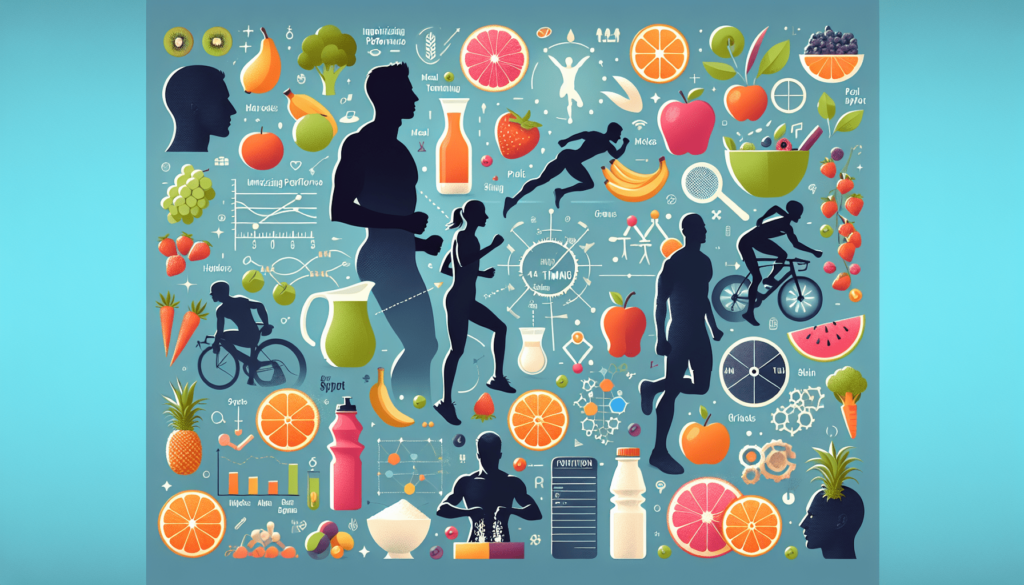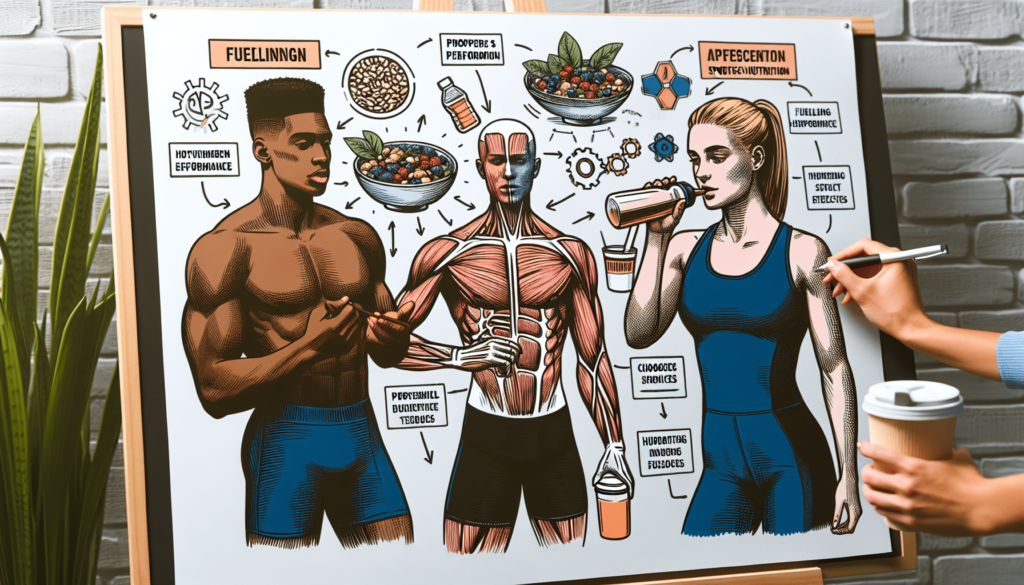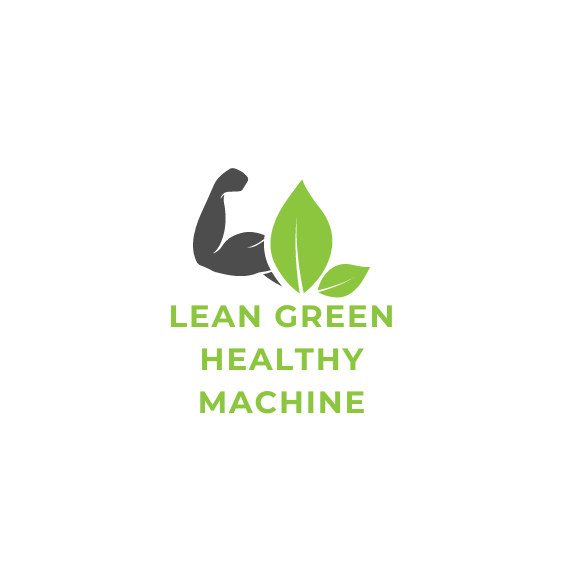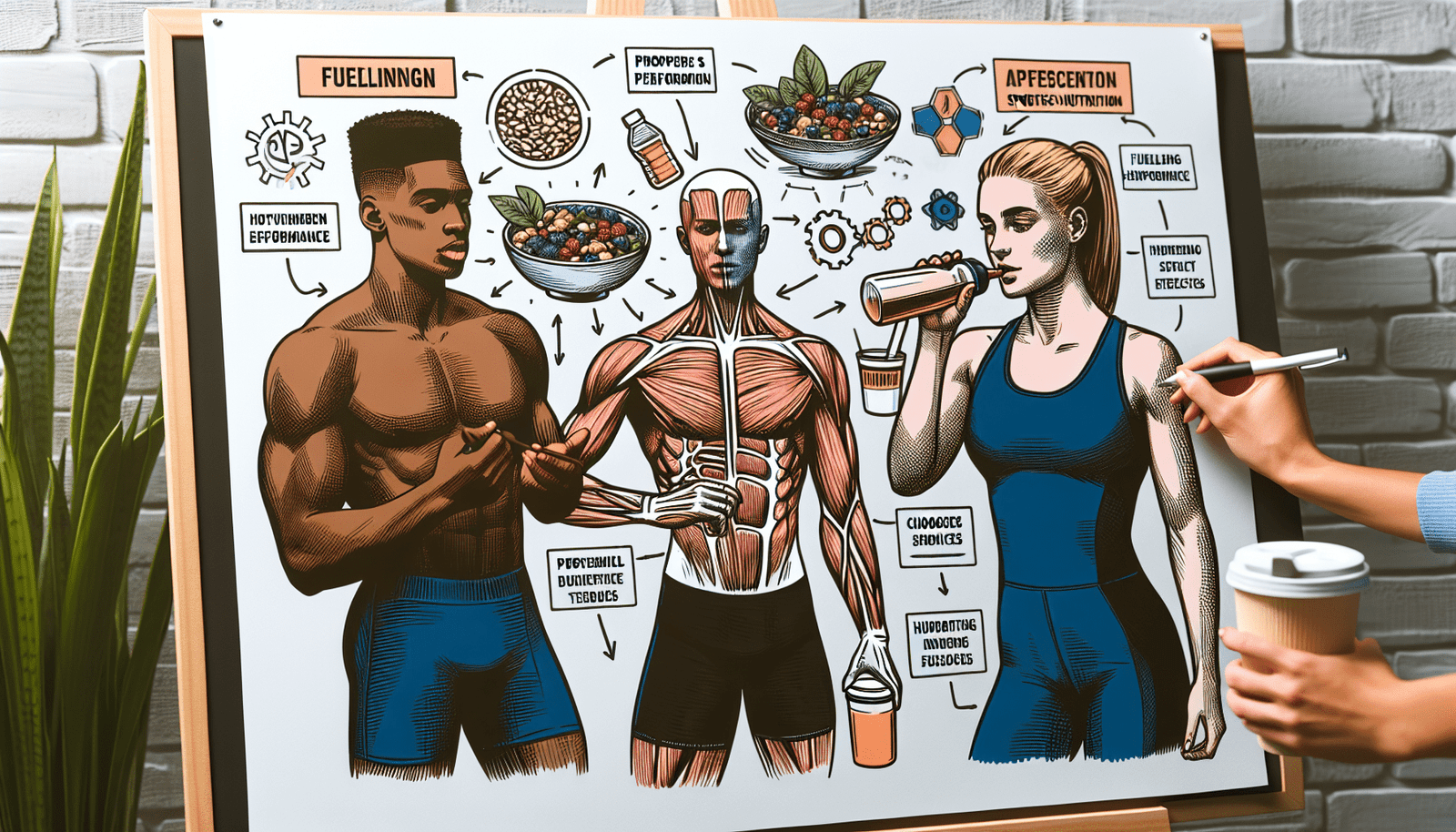Get ready to unlock a world of knowledge in the vibrant realm of healthy living with “Fuel Your Fitness: The Ultimate Guide To Sports Nutrition.” This comprehensive guide takes you on a journey through the power of nutrient-rich superfoods, revealing their disease-fighting potential and secrets to longevity. Dive deep into the wonders of specific heroes like salmon, blueberries, and leafy greens, as you discover how they combat heart issues, boost brainpower, and aid digestion. Along the way, you’ll debunk myths surrounding dark chocolate and detox trends, while empowering yourself to become an informed eater. Take charge of your health by making targeted food choices to navigate the complexities of diabetes, cancer, and mental health. With actionable tips and mouthwatering recipes, this guide will fuel your transformation and unlock a future brimming with vitality. So get ready to embark on a journey of stress reduction, inflammation control, and mood-boosting nutrition. Are you ready to fuel your fitness?

Chapter 1: Understanding Sports Nutrition
The Importance of Sports Nutrition
Sports nutrition is an essential aspect of every athlete’s performance and overall health. A proper nutrition plan can significantly impact your energy levels, recovery, and even your ability to prevent injuries. By providing your body with the right nutrients, you are ensuring that it has the fuel it needs to perform at its best.
Fueling Your Fitness Goals
To achieve your fitness goals, whether it’s improving strength, endurance, or overall athletic performance, you need to fuel your body adequately. This means consuming the right balance of macronutrients and micronutrients, as well as maintaining proper hydration. By prioritizing your nutrition, you can maximize your progress and reach your goals more efficiently.
The Role of Macronutrients
Macronutrients are the building blocks of your diet and consist of carbohydrates, proteins, and fats. Each macronutrient plays a crucial role in fueling your body for physical activity. Carbohydrates provide energy, proteins support muscle growth and repair, and fats serve as a long-lasting source of fuel. By understanding the role of each macronutrient and properly balancing your intake, you can optimize your athletic performance.
The Role of Micronutrients
While macronutrients are essential, micronutrients such as vitamins and minerals also play a vital role in sports nutrition. These micronutrients are responsible for various functions in the body, including cellular energy production, immune function, and muscle recovery. Ensuring that you consume a wide variety of fruits, vegetables, and whole foods can help you meet your micronutrient needs.
Hydration and Performance
Proper hydration is key to maintaining optimal athletic performance. Dehydration can lead to decreased energy levels, muscle cramps, and impaired cognitive function. It’s crucial to drink enough water before, during, and after exercise to replace the fluids lost through sweat. Monitoring your hydration status and staying hydrated can greatly enhance your overall performance.
Pre- and Post-Workout Nutrition
What you eat before and after your workouts can significantly impact your performance and recovery. Pre-workout nutrition aims to provide your body with the energy it needs to perform at its best. It’s important to consume a balanced meal or snack that includes carbohydrates for immediate energy and proteins for muscle support. Post-workout nutrition focuses on replenishing glycogen stores and aiding muscle recovery. Consuming a combination of carbohydrates and proteins within the optimal timeframe can enhance your recovery and help you bounce back faster.
Supplements for Sports Performance
While a well-rounded diet should provide most of the nutrients you need, there are certain circumstances where supplements can be beneficial. Supplements such as protein powders, creatine, and vitamins can help athletes meet their nutritional needs and enhance their performance. However, it’s important to consult with a healthcare professional or a registered dietitian before starting any supplementation regimen.
Chapter 2: Essential Macronutrients for Athletes
Carbohydrates: The Energy Source
Carbohydrates are the primary source of energy for athletes. They are broken down into glucose, which fuels your muscles during exercise. Choosing complex carbohydrates like whole grains, fruits, and vegetables provides a steady release of energy, while simple carbohydrates like sugars and sweets can offer a quick burst of energy. It’s important to include a variety of carbohydrates in your diet to meet your energy demands.
Protein: Building Blocks for Strength
Protein is essential for muscle growth, repair, and maintenance. It provides the necessary building blocks, known as amino acids, for your muscles to recover and grow stronger. Athletes should aim to consume an adequate amount of protein from sources such as lean meats, poultry, fish, dairy products, and plant-based proteins like beans and lentils.
Fats: The Fuel for Endurance
While carbohydrates are the primary fuel source for high-intensity exercise, fats play a crucial role in providing endurance athletes with sustained energy. Healthy fats, such as those found in avocados, nuts, seeds, and fatty fish, should be included in an athlete’s diet to support overall performance.
Timing Your Macronutrient Intake
The timing of your macronutrient intake is also important for optimal performance and recovery. Consuming carbohydrates before exercise can provide your body with immediate energy, while protein intake post-workout helps with muscle repair and growth. Timing your macronutrient intake to align with your training schedule can help maximize your performance and recovery.
Chapter 3: Optimal Micronutrients for Peak Performance
Vitamins and Minerals for Athletes
Vitamins and minerals play a crucial role in supporting overall health and athletic performance. They are involved in energy production, immune function, and muscle recovery. Athletes should focus on consuming a wide variety of fruits, vegetables, whole grains, lean proteins, and dairy products to ensure an adequate intake of these essential micronutrients.
Antioxidants and Recovery
Antioxidants are compounds that help protect your cells from oxidative stress, which can occur during intense exercise. Foods rich in antioxidants, such as berries, dark leafy greens, and colorful fruits and vegetables, can aid in muscle recovery and reduce inflammation.
Electrolytes and Hydration
Electrolytes, such as sodium, potassium, and magnesium, are minerals that play a crucial role in maintaining proper hydration and muscle function. It’s important to consume electrolyte-rich foods and beverages, especially during prolonged exercise or in hot and humid conditions, to replace the electrolytes lost through sweat.
Essential Supplements for Athletes
While a balanced diet should provide most of the necessary micronutrients, there are instances where supplements may be beneficial. Athletes who have specific dietary restrictions, deficiencies, or higher nutrient needs may benefit from supplements. It’s important to consult with a healthcare professional or registered dietitian to determine if supplementation is necessary and which supplements are most suitable.
Chapter 4: Hydration Strategies for Sports
The Importance of Hydration
Proper hydration is vital for athletic performance and overall health. Dehydration can lead to decreased energy levels, muscle cramps, and impaired cognitive function. It’s essential to prioritize hydration by drinking water regularly throughout the day, especially before, during, and after exercise.
Understanding Sweat Loss and Fluid Needs
Every athlete’s fluid needs are different, and it’s important to understand how much fluid you lose through sweat during exercise. Weighing yourself before and after exercise can help determine your sweat rate and guide your fluid intake. For every pound lost during exercise, you should aim to drink approximately 16-24 ounces of fluid to replenish hydration levels.
Hydration During Different Types of Exercise
The fluid needs during exercise vary depending on the duration and intensity of the activity, as well as environmental factors such as temperature and humidity. For shorter workouts, plain water may be sufficient, while longer and more intense workouts may require electrolyte-rich sports drinks to replace both fluids and electrolytes lost through sweat.
Hydration Before, During, and After Exercise
To maintain proper hydration levels, it’s important to drink fluids before, during, and after exercise. Consuming water or a sports drink before exercise can help ensure that you start your workout adequately hydrated. During exercise, aim to drink fluids every 15-20 minutes, especially during intense or prolonged activities. After exercise, prioritize hydrating to replenish any fluids lost during the workout.

Chapter 5: Pre-Workout Nutrition Guidelines
Fueling Up for Workouts
Proper pre-workout nutrition is essential for providing your body with the energy it needs to perform at its best. Aim to consume a balanced meal or snack that includes carbohydrates for immediate energy and proteins for muscle support. It’s also important to consider the timing of your pre-workout meal or snack to avoid discomfort during exercise.
The Importance of Carbohydrates
Carbohydrates are the primary fuel source for high-intensity exercise. Including carbohydrates in your pre-workout meal or snack provides your body with readily available energy. Opt for complex carbohydrates like whole grains, fruits, and vegetables, which offer a sustained release of energy.
Protein and Amino Acids for Muscle Support
Including a source of protein in your pre-workout meal or snack helps support muscle growth and repair. Consuming protein before exercise provides a steady supply of amino acids, the building blocks of proteins, which can enhance muscle recovery and help prevent muscle breakdown.
Pre-Workout Snack Ideas
Pre-workout snacks should be easily digestible and provide a balance of carbohydrates and proteins. Some examples of pre-workout snacks include a banana with nut butter, Greek yogurt with berries, or a small turkey and cheese sandwich on whole grain bread. Experiment with different options to find what works best for your body and preferences.
Chapter 6: Post-Workout Recovery Nutrition
The Role of Protein in Recovery
Protein is crucial for muscle recovery after exercise. Consuming protein post-workout provides your muscles with the necessary amino acids to repair and rebuild. Including a source of high-quality protein, such as lean meats, poultry, fish, eggs, or plant-based proteins, in your post-workout meal or snack is essential for optimal recovery.
Carbohydrates for Glycogen Replenishment
During exercise, your body depletes glycogen stores, which are a crucial source of energy. Consuming carbohydrates post-workout replenishes these glycogen stores and aids in recovery. Opt for complex carbohydrates like whole grains, sweet potatoes, or fruits to provide a steady release of energy.
Optimal Timing for Post-Workout Nutrition
Timing your post-workout nutrition is important to maximize the benefits of recovery. Aim to consume a meal or snack containing carbohydrates and protein within 30-60 minutes after exercise, when your muscles are most receptive to nutrient uptake. This window of opportunity helps facilitate muscle repair and growth.
Nutrient-Dense Recovery Meal Examples
A nutrient-dense recovery meal should include a combination of carbohydrates and protein, as well as other essential nutrients. Some examples of nutrient-dense recovery meals include grilled chicken with quinoa and roasted vegetables, a salmon and sweet potato bowl, or a tofu stir-fry with brown rice. These meals provide a balanced combination of macronutrients and micronutrients to support your recovery.
Chapter 7: Sports Supplements Demystified
Understanding Sports Supplements
Sports supplements are products designed to enhance athletic performance, aid recovery, and support overall health. They come in various forms, including powders, capsules, and bars. It’s important to understand the purpose and ingredients of each supplement before incorporating them into your regimen.
Protein Powders and Bars
Protein powders and bars are popular supplements among athletes, as they provide a convenient and efficient source of protein. They can be especially beneficial for those who struggle to meet their protein needs through whole foods alone. When choosing protein supplements, opt for high-quality sources such as whey, casein, or plant-based proteins.
Creatine for Strength and Power
Creatine is a natural substance found in the body that plays a role in providing energy for high-intensity exercise. Supplementing with creatine can enhance strength and power, making it a popular choice among athletes involved in activities that require bursts of intense energy, such as weightlifting or sprinting.
Branched-Chain Amino Acids (BCAAs)
BCAAs are a group of essential amino acids, including leucine, isoleucine, and valine. They are commonly used as a supplement to support muscle growth, reduce muscle soreness, and improve exercise performance. BCAAs can be consumed in the form of a powder or capsules.
Multivitamins for Athletes
Multivitamins are supplements that contain a combination of vitamins and minerals. While a well-rounded diet should provide most of the necessary nutrients, athletes may have higher nutrient needs due to increased physical activity. A daily multivitamin formulated for athletes can help bridge any potential nutrient gaps and support overall health.
Chapter 8: Tailoring Nutrition for Different Sports
Endurance Sports
Endurance sports, such as long-distance running, cycling, or swimming, require a focus on adequate carbohydrate intake to sustain energy levels. It’s important to consume a variety of complex carbohydrates, such as whole grains, fruits, and vegetables, to provide the necessary fuel for these activities.
Team Sports
Team sports, like soccer, basketball, or rugby, require a balance of carbohydrates, proteins, and fats to support both endurance and strength. It’s important to focus on consuming a well-rounded diet that includes a variety of nutrient-dense foods to meet the demands of these dynamic sports.
Strength and Power Sports
Strength and power sports, such as weightlifting or sprinting, require a higher protein intake to support muscle growth and repair. Additionally, adequate carbohydrate consumption is crucial for providing energy during high-intensity workouts. Including a balance of proteins, carbohydrates, and healthy fats in your diet can optimize performance in these sports.
Combat Sports
Combat sports, such as boxing or martial arts, place a high demand on an athlete’s body. Proper nutrition is essential for fueling intense training sessions and promoting recovery. A well-balanced diet that includes adequate protein, carbohydrates, and healthy fats can help support performance and minimize the risk of injuries.
Flexibility and Agility Sports
Flexibility and agility sports, such as gymnastics or figure skating, require a focus on maintaining leanness and flexibility while fueling performance. Proper nutrition should include a balance of carbohydrates for energy, proteins for muscle support, and healthy fats for overall health. Ensuring adequate nutrient intake while maintaining body composition goals is crucial for optimal performance in these sports.
Chapter 9: Eating for Performance and Weight Management
Caloric Needs for Athletes
Athletes have higher energy needs due to increased physical activity levels. Calculating your caloric needs based on factors such as body weight, activity level, and goals can help ensure that you are fueling your body adequately. It’s important to consume enough calories to support both performance and overall health.
Balancing Nutrition and Body Composition
Finding the right balance between optimal performance and body composition goals can be challenging. It’s important to prioritize nutrient-dense foods while considering portion sizes and overall caloric intake. Consulting with a registered dietitian can help you develop a tailored nutrition plan that aligns with your performance and body composition goals.
Strategies for Weight Gain and Muscle Building
For athletes looking to increase muscle mass and overall body weight, it’s important to consume a surplus of calories. This surplus should come from nutrient-dense foods and prioritize sufficient protein intake to support muscle growth and repair. Combined with an appropriate strength training program, this approach can help promote muscle building and weight gain.
Strategies for Weight Loss and Fat Burning
Athletes looking to lose body fat should aim for a gradual and sustainable approach to weight loss. Calorie restriction should be done in a balanced manner, ensuring adequate protein intake to support muscle retention. Prioritizing nutrient-dense foods, portion control, and a combination of cardiovascular exercise and strength training can aid in fat loss while preserving muscle mass.
Chapter 10: Practical Tips for Sports Nutrition
Creating Pre- and Post-Workout Meal Plans
Planning your pre- and post-workout meals and snacks in advance can help ensure that you have proper nutrition readily available. Consider the timing of your workouts, the intensity, and the duration to determine the appropriate macronutrient ratios for your meals. Prepare meals or snacks that are easy to pack and consume to fuel your workouts effectively.
Snack Ideas for On-the-Go Athletes
For athletes who are always on the go, having quick and portable snack options is essential. Consider packing items like protein bars, trail mix, Greek yogurt cups, or pre-cut fruits and vegetables. These snacks provide a convenient way to fuel your body with the necessary nutrients when time is limited.
Meal Preparation for Busy Athletes
Meal preparation can save time and ensure that you have nutritious meals readily available. Set aside time each week to plan your meals, go grocery shopping, and prepare meals in advance. This can help promote consistency in your nutrition and prevent resorting to unhealthy food choices when time is limited.
Eating Out and Traveling Tips
Eating out and traveling can present challenges when it comes to maintaining a healthy diet. However, with proper planning, it’s still possible to make nutritious choices. Research restaurant menus in advance, pack healthy snacks for travel, and prioritize lean proteins, fruits, vegetables, and whole grains when dining out. Drink water or unsweetened beverages to stay hydrated, and be mindful of portion sizes.
Staying Consistent and Motivated
Consistency is key when it comes to sports nutrition. Develop healthy habits and routines that work for you, and stick to them. Remembering your goals and the benefits of proper nutrition can help keep you motivated on your fitness journey. Surround yourself with a supportive community or find an accountability partner to help you stay on track.
By understanding the importance of sports nutrition, fueling your body with the right macronutrients and micronutrients, optimizing hydration, and tailoring your nutrition for your specific sport and goals, you can enhance your athletic performance and overall well-being. With practical tips and a commitment to consistency, you can fuel your fitness and unlock your full potential. So, embrace the power of sports nutrition and embark on a transformative journey towards a future filled with vitality and success.

